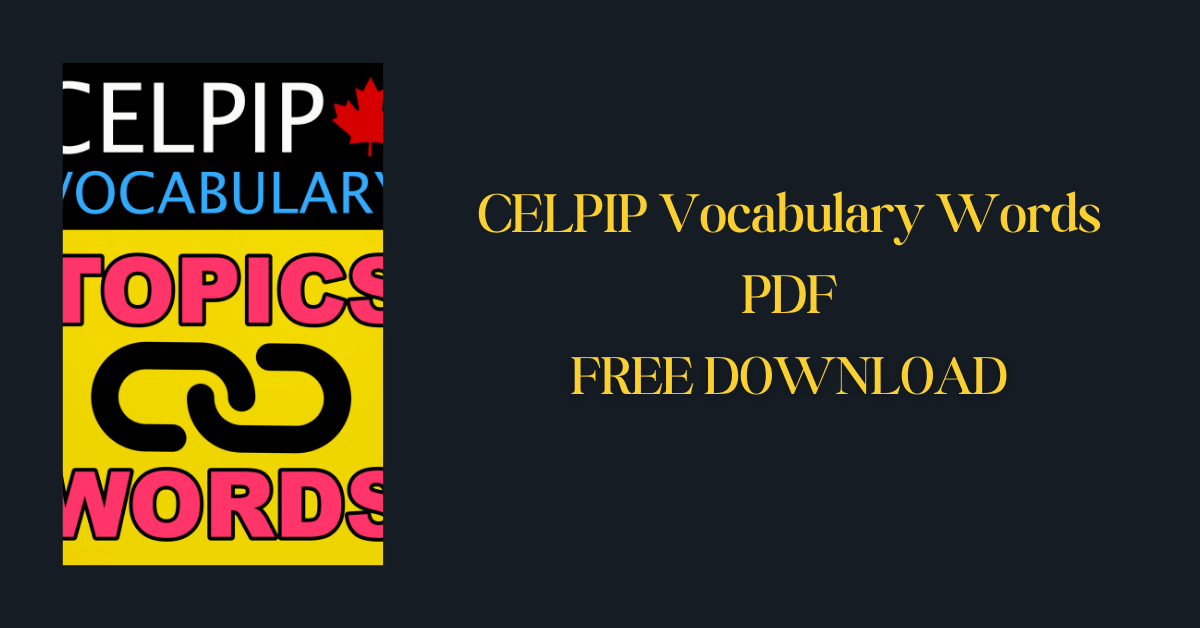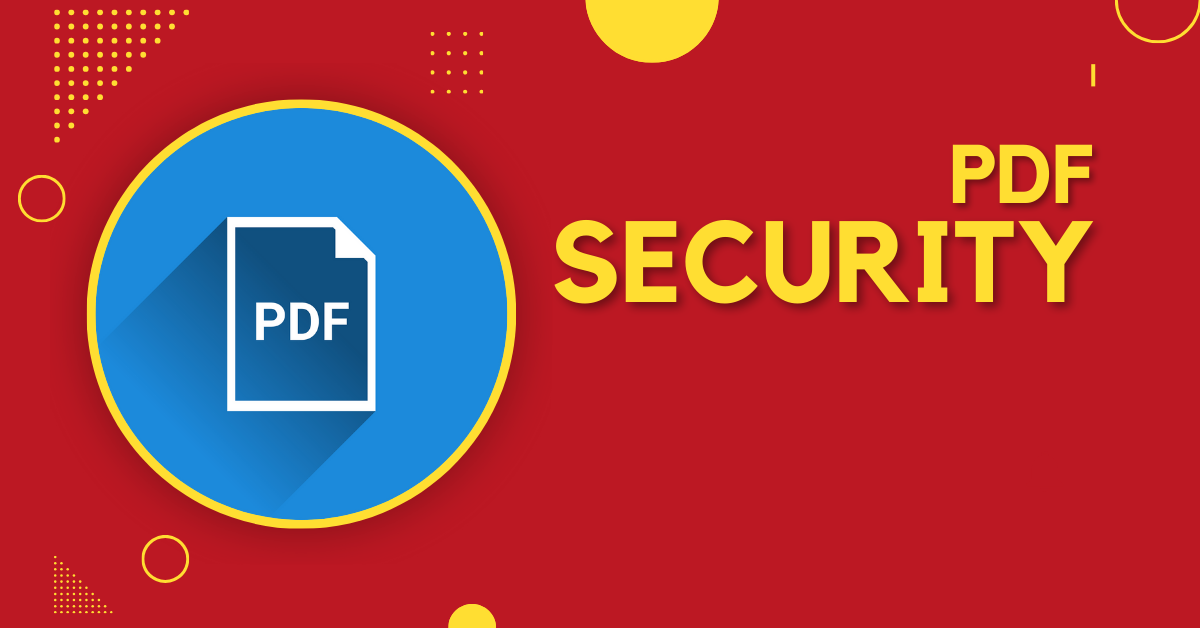A standardized test called the Canadian English Language ability Index Program (CELPIP) is used to evaluate applicants’ English language ability when they seek citizenship or permanent residence in Canada. It evaluates a candidate’s proficiency with the language in a range of real-world contexts, such as social interactions, work, and study. One crucial aspect of excelling in the CELPIP exam is having a strong grasp of vocabulary.
A rich vocabulary enables test-takers to comprehend passages, express ideas effectively, and understand spoken English. It is necessary to pass the CELPIP exam and is important for reading, writing, speaking, listening, and writing components of the test.
| Name of the PDF | CELPIP vocabulary words pdf |
| No. of pages | 28 |
| Category | |
| Language | English |
| PDF Link | Click Here |
Also Download
IMM 5257 Annexe 1 Francais PDF
Cahier Sommet Secondaire 2 PDF
Avis D’augmentation De Loyer PDF
Types of CELPIP Vocabulary
The CELPIP (Canadian English Language Proficiency Index Program) test assesses your English skills in listening, reading, writing, and speaking. To succeed, you’ll need a broad and flexible vocabulary. Here’s a breakdown of the different types of vocabulary you should focus on for the CELPIP:
Everyday Vocabulary: This is the basic language you use in daily communication. Make sure you have a firm command of common verbs, nouns, adjectives, and adverbs that you’ll need for conversations and casual writing.
Formal/Academic Vocabulary: The CELPIP will feature more formal situations and reading passages that may contain academic vocabulary. This includes words and phrases often used in professional settings, research contexts, or higher education.
Topic-Specific Vocabulary: For the writing and speaking tasks, you may encounter prompts on various topics like the environment, technology, or social issues. Study vocabulary relevant to a range of common topics to express yourself accurately.
Collocations: These are words that commonly go together in natural English (like “heavy rain” or “make a decision”). Knowing common collocations will elevate the fluency of your written and spoken responses.
Idioms and Phrasal Verbs: Idioms are figurative expressions that don’t translate literally (like “under the weather,” meaning unwell). Phrasal verbs combine a verb with a preposition or adverb, altering the meaning (like “put off,” meaning postpone). Understanding these will be important for both the listening and reading sections as well as more natural speaking and writing.
How to Improve Your CELPIP Vocabulary
Here are some effective ways to improve your CELPIP vocabulary:
Active Learning Techniques
- Reading Widely: Explore newspapers, magazines, online articles, and books on different topics. This exposes you to a range of vocabulary in context. Pay attention to new words, try to guess their meaning from the surrounding text, and then look them up to confirm.
- Listening: Listen to English-language podcasts, audiobooks, radio shows, and watch TV programs or movies. Focus on understanding new words and how they are used in sentences.
- Vocabulary Lists and Flashcards: Use resources that specifically target CELPIP vocabulary or create your own flashcards. Focus on those words’ definitions, synonyms, and examples of their use in sentences.
- Word Games and Apps: Take advantage of fun word puzzles, crosswords, and vocabulary-building apps to reinforce your learning.
Strategies for Deeper Understanding
- Word Roots and Affixes: Learn common prefixes (like “un-” or “re-“) and suffixes (like “-tion” or “-ly”). This will help you decipher the meanings of unfamiliar words.
- Keep a Vocabulary Journal: Write down new words, their definitions, example sentences, and synonyms. Review this journal regularly.
- Use New Words: Actively try to incorporate newly learned words into your daily conversations, writing practice, and CELPIP practice tasks.
Additional Tips
- Set Realistic Goals: Start with a manageable number of words to learn per day or week and gradually increase it.Z
- Focus on Relevance: Prioritize words you’re likely to encounter on the CELPIP.
- Practice Regularly: Make vocabulary building a daily habit for the best results.
Key Strategies for Using Vocabulary in CELPIP
Here are key strategies to effectively use your vocabulary during the CELPIP exam:
Writing and Speaking
- Precision over Fanciness: Choose words that accurately convey your ideas, even if they are simpler. Misused complex words will negatively impact your score.
- Variety: Demonstrate a wide vocabulary range by employing synonyms and different word forms (e.g., using both the noun “innovation” and the verb “innovate”).
- Collocations: Use natural word combinations to sound fluent and native-like.
- Context Matters: Be sure the word you choose fits the style and tone of the writing task or speaking prompt. Formal words may be out of place in an email to a friend, for example.
- Don’t Overdo It: Avoid stuffing your responses with complex vocabulary just for the sake of it. Clarity and coherence are paramount.
Listening and Reading
- Inference: Use context clues surrounding unfamiliar words to guess their meaning. This is essential for the listening and reading sections.
- Roots and Affixes: Use your knowledge of prefixes, suffixes, and word roots to decipher the meanings of unknown words.
- Don’t Panic: If you encounter a completely unfamiliar word, don’t let it derail your focus. Try to grasp the overall meaning of the passage or conversation instead.
General Tips
- Idioms and Phrasal Verbs Awareness: Understand common idioms and phrasal verbs, as they naturally appear in both written and spoken English.
- Topic-Based Vocabulary: Brush up on vocabulary related to common CELPIP themes (technology, work, social issues, etc.) to better comprehend passages and respond to prompts.
Importance of Preparing for CELPIP Vocabulary Exam
Preparing for the CELPIP (Canadian English Language Proficiency Index Program) vocabulary is crucial for several reasons, especially considering the exam is designed to assess English language proficiency across various domains such as listening, reading, writing, and speaking. Here are some of the key reasons why preparing specifically for CELPIP vocabulary is important:
Improves Overall Communication Skills: A strong vocabulary is the foundation of effective communication in any language. By preparing for the CELPIP vocabulary exam, you’re not just studying for a test; you’re enhancing your ability to express yourself clearly and accurately in English. This improvement extends beyond the exam to everyday life, academic settings, and professional environments.
Increases Comprehension: A broad vocabulary aids in understanding more complex texts and conversations. During the CELPIP exam, you will encounter a variety of texts and audio clips that may include unfamiliar topics or sophisticated language. A well-prepared vocabulary allows you to comprehend these materials more effectively, ensuring you can respond to questions accurately.
Enhances Performance in All Sections of the Exam: Vocabulary is not just crucial for the speaking and writing sections; it also plays a significant role in the listening and reading sections. Knowing a wide range of words and phrases allows you to grasp the nuances of what you read and hear, which can lead to better scores across the board.
Boosts Confidence: Entering the exam with a strong command of English vocabulary can significantly boost your confidence. This confidence can improve your performance, especially in the speaking section, where anxiety and nervousness can otherwise hinder your ability to articulate your thoughts.
Achieves Specific Score Requirements: Many test-takers aim to achieve a specific score on the CELPIP to meet the requirements of immigration, professional licensing, or academic admissions. A robust vocabulary is essential for reaching these target scores, as it directly impacts your ability to express ideas, understand questions and prompts, and engage with the exam materials effectively.
Prepares for Real-life English Usage: The CELPIP exam is designed to assess English proficiency in a way that reflects real-life situations, such as communicating in the workplace, interacting in a community, or understanding academic lectures. Preparing for CELPIP vocabulary equips you with the language skills needed to navigate these situations successfully.
Reduces Ambiguity and Errors in Responses: A limited vocabulary can lead to vague responses, especially in the writing and speaking sections, where you are required to express ideas clearly and coherently. A strong vocabulary allows for precision in language use, reducing the likelihood of misunderstandings and errors.
Facilitates Faster Processing Time: Knowing a wide range of vocabulary allows for quicker processing of information during the exam. This efficiency is crucial given the time-limited nature of the CELPIP, enabling you to complete tasks more rapidly and review your responses if needed.
Conclusion
Expanding one’s vocabulary is crucial for success in language proficiency exams like CELPIP. A rich vocabulary not only enhances communication skills but also enables test-takers to express themselves more effectively, thereby boosting their overall scores. Through consistent practice and exposure to diverse sources, individuals can steadily enhance their lexical repertoire, increasing their confidence and competence in both written and spoken English.
Ultimately, mastering vocabulary is a continuous journey that yields significant rewards, not only in examinations but also in various aspects of personal and professional life. Therefore, investing time and effort into vocabulary development is a wise choice for anyone aiming to excel in the CELPIP and beyond.
FAQs
What is the CELPIP Vocabulary Exam?
The CELPIP Vocabulary exam isn’t a separate exam but refers to the vocabulary knowledge tested within the CELPIP exam’s four components: listening, reading, writing, and speaking. Vocabulary is an essential aspect of all these sections, as it helps test takers to understand and communicate ideas more effectively.
How can I improve my vocabulary for the CELPIP exam?
To enhance vocabulary for the CELPIP, it’s advisable to engage in extensive reading across diverse materials, practice using new words in daily conversations, study through vocabulary lists tailored for CELPIP or academic English, utilize flashcards for memorization, and leverage language learning apps.
Are there specific vocabulary topics I should focus on for CELPIP?
While the exam does not focus on vocabulary from specific topics, concentrating on themes such as daily life, work, education, health, environment, and social issues could be beneficial.
How is vocabulary assessed in the CELPIP exam?
Vocabulary proficiency is gauged indirectly through the exam, with comprehension in listening and reading sections, and the ability to employ a varied vocabulary in writing and speaking sections.
Can I use slang or informal language in the CELPIP exam?
While the CELPIP exam assesses your ability to use English in everyday situations, it’s important to use language that is appropriate for the context. In the speaking and writing sections, you may use informal language if it suits the scenario (e.g., a conversation with a friend). However, for more formal tasks (e.g., writing a letter to a manager), it’s crucial to use formal language and avoid slang.
How long should I prepare for the CELPIP vocabulary?
Preparation time can vary widely among test-takers, depending on their current level of English proficiency and familiarity with the exam format. It’s recommended to start preparing at least a few months in advance, allowing time to gradually build vocabulary and apply it in various contexts.

Niketa Mulay, a seasoned content writer and editor, has over a decade of experience. With a Master’s in Journalism, she honed her skills at The Times of India and now freelances across various industries. Passionate about reading, writing, and scuba diving, she shares expert PDF guides and tips at PDFdrivehub.com.




